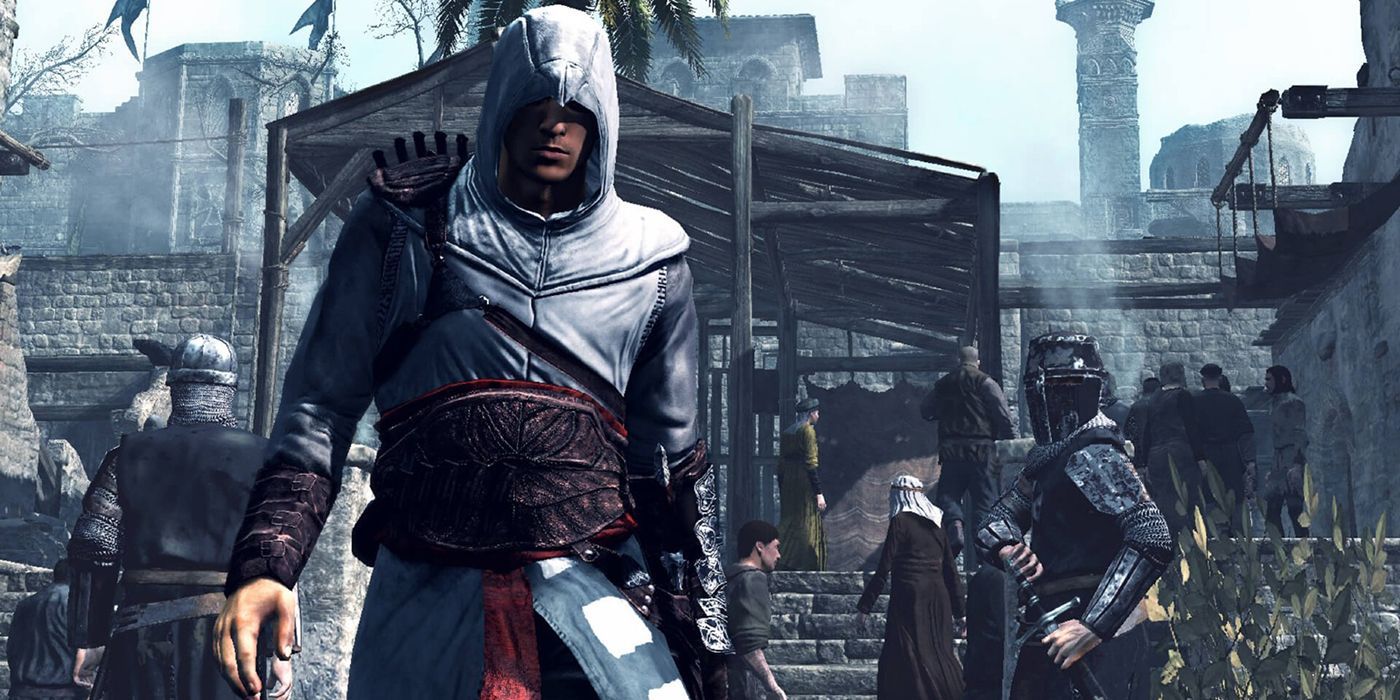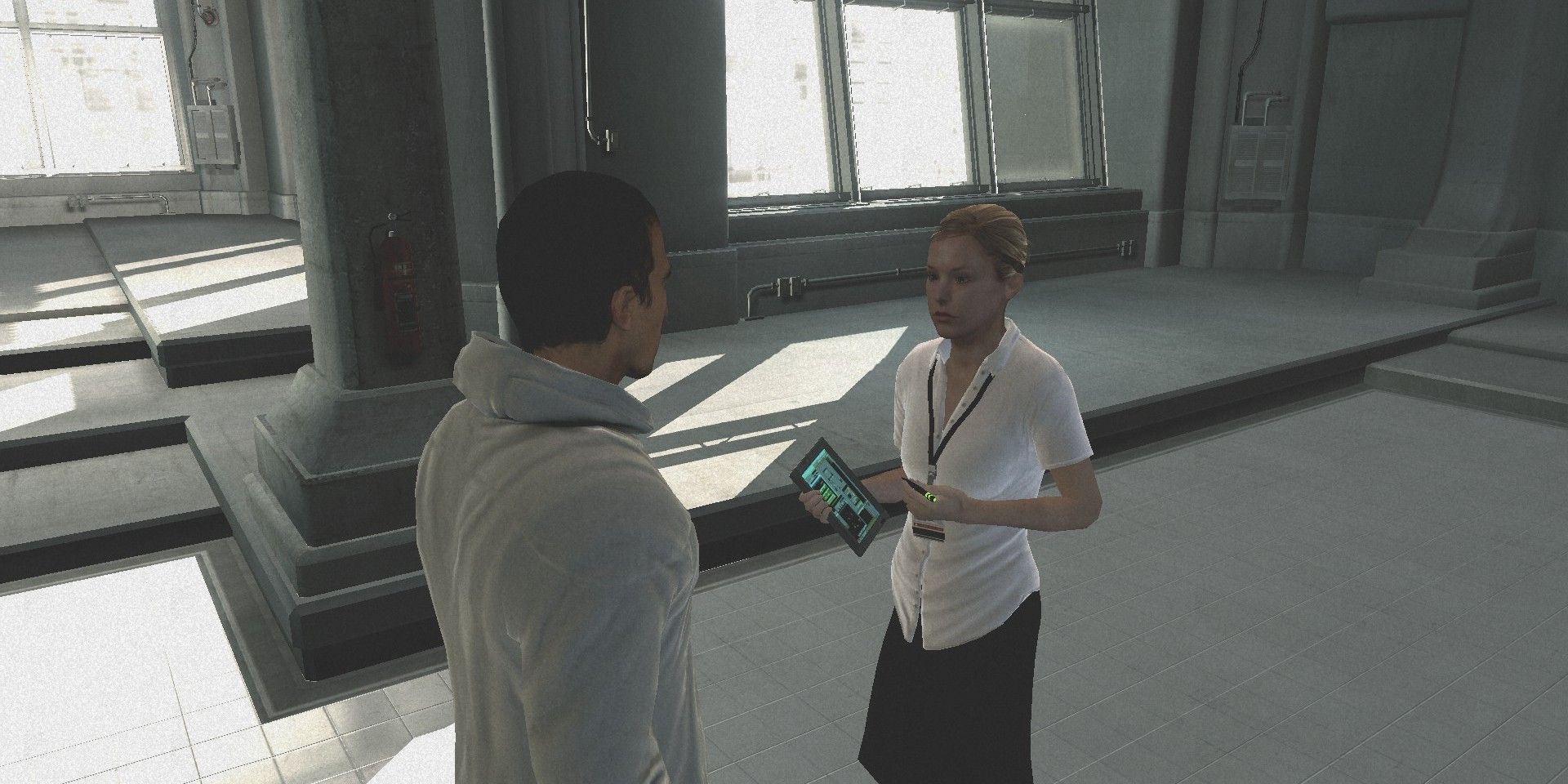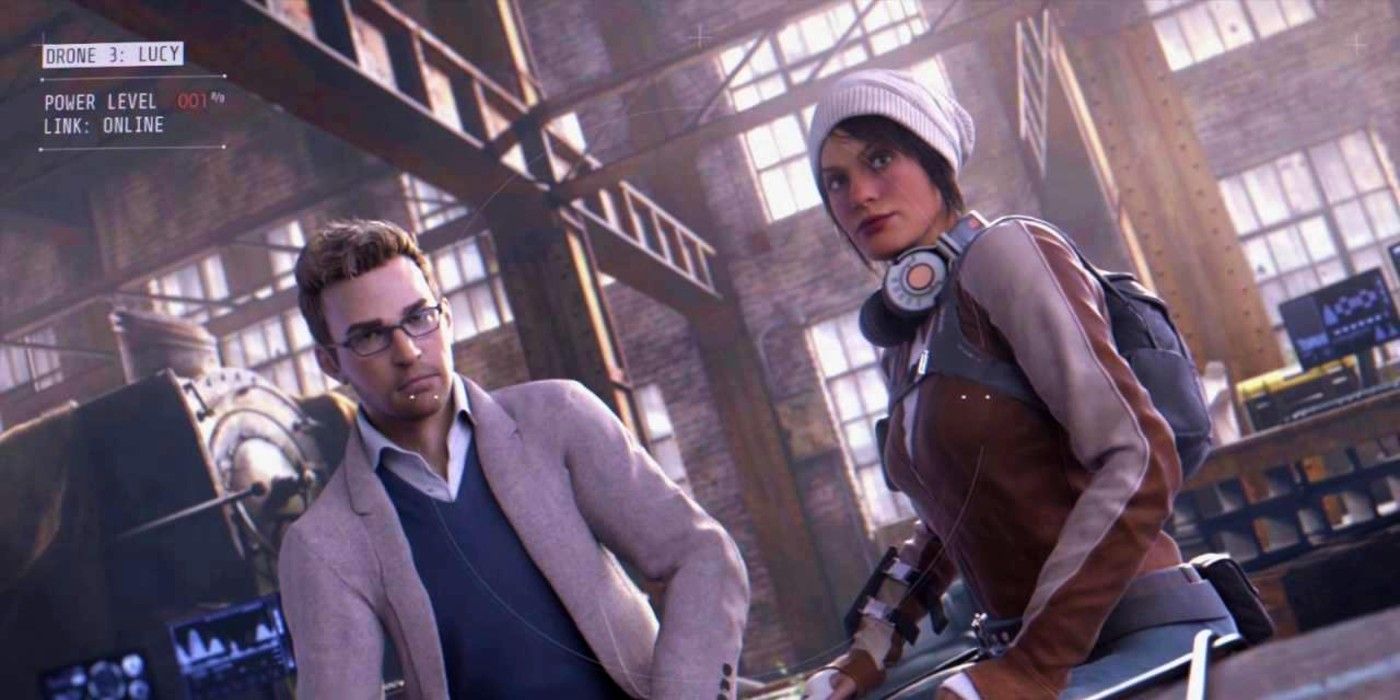The Assassin's Creed franchise has been persisting for well over a decade now, but the series as a whole was irreparably damaged by its very first entry. 2007's Assassin's Creed was a landmark title, convincing countless consumers to invest in next-gen Xbox 360 and PS3 consoles to experience the high-fidelity, open-world historical action game for themselves. There have since been dozens of mainline and spin-off Assassin's Creed games, but Ubisoft's first outing ruined what the franchise could have been.
Long before Assassin's Creed was a flagship franchise nearly synonymous with the term "AAA gaming", it was just a single game that centered around a Syrian assassin called Altaïr Ibn-La'Ahad, who fought against a tyrannical templar order in the 13th century. While this premise is interesting enough, Assassin's Creed decided to introduce some science fiction and pseudo time-travel elements by being set in the modern day, with players technically not playing as Altaïr, but as Desmond Miles, his distant descendant using advanced tech to relive genetic memories. Through this setup, Assassin's Creed was split into two halves: historical stealth, exploration, and combat, and slow-paced, modern-day sleuthing.
This general formula would be retained in future entries and although it has been expanded upon, it's also arguable that Assassin's Creed never got over Desmond and the original framework of the first game as a whole. Because of the immense popularity of the franchise, the connective tissue between the games - that is, the modern day segments - has been stretched beyond its limit. As a result, the Assassin's Creed franchise has become increasingly awkward while being more limited than it should be.
Assassin's Creed 2007 Made Too Many Narrative Promises
On paper, the premise of Assassin's Creed is, at the very least, original. There is certainly potential in the series' The Matrix-esque science fiction elements, and the first game laid out plenty of intrigue in the dynamics of the Assassins and Templars, suggesting a long-running history between two powerful factions that would come to a head in an explosive way. Desmond Miles himself, if a bit bland, was an interesting protagonist as he was positioned at the center of this conflict and was a good audience surrogate.
However, as the Assassin's Creed story has gotten too long, most of what made the original narrative interesting has been lost. It seems clear that, if the game's writers did have a plan for the overarching modern-day plot, it has long been abandoned in favor of a less impactful story that serves primarily to keep the series alive for as long as possible. There were twists and interesting beats in the early parts of the story, like Minerva speaking to Desmond through Ezio in Assassin's Creed 2, that lead to flaccid, unsatisfying climaxes as the story meandered aimlessly. Had the first Assassin's Creed not forced the series to have one foot in the past and one in the present, it could have led to stories that were more segmented and less cohesive in the greater scheme of the series, but that would have been far more interesting.
Assassin's Creed Pigeonholed The Franchise In The Modern Day
It's not exactly controversial to argue that Assassin's Creed is held back by its present-day sections. Outside of the aforementioned narrative issues, the split timeline of Assassin's Creed creates problems when it comes to gameplay and the overall structure of each entry, as it isn't uncommon for games to abruptly pull players out of the Animus and into the real world with its less-developed, less-interesting characters and gameplay mechanics. This can bring the momentum of the games to a screeching halt, throwing players into a side of the experience with less appealing gameplay mechanics and activities to take part in.
This issue is exacerbated by the fact that the modern-day sections are not at all consistent between games. Like with the modern-day narrative, these sections once held promise, with Desmond developing as an assassin alongside the character and even taking part in real-world missions, suggesting an eventual game set exclusively in the present (despite this being a setting that Assassin's Creed should avoid). These Desmond sections got less interesting as the games went on, however, and they started to feel like even more of an afterthought following Desmond's demise at the end of Assassin's Creed 3.
Post-Desmond modern-day sections have failed to be interesting, especially in the Assassin's Creed games that take place between the death of Desmond and the assumption of Layla as the modern-day protagonist. Starting with Assassin's Creed 4: Black Flag, players began controlling a nameless, faceless, voiceless Abstergo employee in slow-paced walking simulator portions of the game that feel mostly divorced from the broader story of the game and series. This was even further stripped back in Unity and Syndicate, which carried on the tradition of having unnamed, faceless modern-day characters, but opted to remove gameplay altogether, strengthening the idea that the modern-day sections are pointless. Assassin's Creed's next game may be connected to Valhalla, but Layla's departure at the end of the most recent game suggests even more underwhelming, disconnected modern-day implementations. Moreover, the lack of cohesion between these modern-day sections call the existence of the modern-day elements into question, as it's clear that they don't exist for the sake of consistency.
The historical action-RPG elements of Assassin's Creed have almost limitless potential; future entries in the series can visit all manner of different time periods and tell countless unique, engaging, self-contained stories while offering up distinct gameplay and exploration. Unfortunately, the same cannot be said for the more sci-fi, present-day aspects of the Assassin's Creed story, which were woven into the DNA of the series from its first entry and have subsequently been viewed as inextricable parts of the Assassin's Creed identity. Because so much importance was given to these parts of the narrative in 2007's Assassin's Creed and into the well-received Ezio Collection of Assassin's Creed games, it's possible that the series' developers have felt obligated to continue, despite it running out of steam years ago. Assassin's Creed may still be a popular game, but there are things that it will need to do to stay relevant and engaging in the coming years, and letting go of the baggage of its first entry is one of them.



